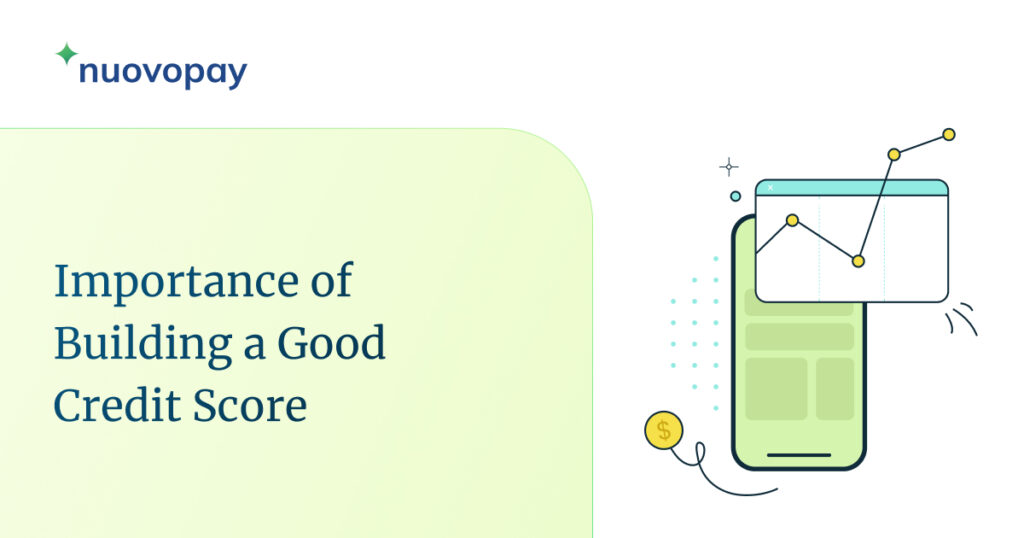Did you know that a single three-digit number can wield immense power over your financial future? Indeed, in today’s economy, your credit score is much more than just a number. It’s a gateway to opportunities and a reflection of your financial responsibility.
Despite its huge impact, the concept of credit score remains a mystery for millions worldwide. Across the globe, there is a lack of awareness about credit score and its significance in shaping personal finances. This lack of awareness is not only common in developed nations but is even more pronounced in regions with limited access to credit and financial education.

In many countries, individuals face challenges when it comes to building credit and accessing financial services. Limited access to traditional banking institutions, inadequate credit reporting infrastructure, and economic instability are just few of the barriers that hinder millions from establishing creditworthiness and securing essential financial resources. As a result, entire communities are left underserved, unable to belt the full potential of the modern economy.
In this article, we’ll see how building a good credit score enhances personal financial prospects and plays a crucial role in encouraging trust, access, and participation in the digital and financial economy.
The Importance of Credit Score
A credit score is a numerical representation of an individual’s creditworthiness, typically ranging from 300 to 850. It is calculated based on various factors such as payment history, credit utilization, length of credit history, types of credit accounts, and new credit inquiries. Lenders and financial institutions use credit scores to assess the risk of lending money to an individual, determining whether they are likely to repay debts responsibly.
Credit score influences individual’s lives in various ways, extending beyond merely borrowing and lending. It serves as a gateway to a bundle of financial prospects, from obtaining credit cards, personal loans, and mortgages to securing favorable terms and interest rates. Individuals with lower credit scores may encounter hurdles in accessing credit.
Credit score directly impacts borrowing capacity, determining the credit limits and interest rates individuals can access. A higher credit score translates to more substantial borrowing power and increased flexibility in managing finances. Additionally, credit scores affect housing opportunities, as owners often scrutinize prospective tenants’ credit histories. A good credit score enhances the chances of securing a lease and may even lead to reduced security deposits or rental rates.
Beyond housing, credit scores can influence employment opportunities, insurance premiums, and eligibility for utilities and services. Some employers review credit histories during hiring, and insurers look after them during insurance application processes. Utility providers may consider credit scores when determining service eligibility or deposit requirements. Understanding the crucial role of credit scores is essential, as they essentially function as a financial passport, opening doors to homeownership, employment, and overall financial stability.
Challenges in Building Credit
Despite the important impact of credit scores on financial well-being, a significant portion of the population remains unaware of their credit status. Several factors contribute to this lack of awareness. To start, the credit reporting system can be complex and opaque, making it challenging for individuals to understand how the credit score is calculated and how their financial behavior affects it.
Many people receive little to no formal education about credit scores and personal finance, leaving them unsure about how to manage money effectively. Moreover, without regular monitoring of their credit reports, individuals may not realize the importance of their credit score or the potential impact of negative information such as missed payments or identity theft.
Challenges in Underserved Communities
Individuals in underserved regions or communities face unique challenges when it comes to building credit.
Limited Access to Traditional Banking Services
Access to brick-and-mortar banks and credit unions may be limited in financially challenged areas. Without nearby financial institutions, individuals may struggle to establish banking relationships or access basic financial services.
Lack of Credit History
Many individuals in underserved communities have thin or nonexistent credit histories, making it difficult for them to qualify for credit cards, loans, or other financial products. Without opportunities to build credit, they may remain trapped in a cycle of financial exclusion.
High Cost of Financial Services
In some cases, alternative financial services such as payday lenders or check-cashing services may be the only available options in underserved communities. However, these services often come with high fees and interest rates, further inflaming financial hardship and sustaining a reliance on non-traditional credit sources.
The Digital Divide
In the digital economy, accessing online financial services, such as applying for loans or setting up digital wallets, often requires a credit history or a traditional bank account. However, many individuals, especially those without credit histories or access to banking services, face barriers to participate fully in the digital economy. They may be excluded from these services because they lack the necessary credit history or means to verify their identity through traditional banking channels.
A good credit score can serve as a bridge across this digital divide. By establishing a positive credit history, individuals can unlock access to a range of financial services and digital platforms. A strong credit score demonstrates creditworthiness and facilitates identity verification, enabling individuals to participate more fully in the digital economy.
Leveraging Innovative Technologies for Inclusivity
Using new technologies is essential for making the financial and digital economy more inclusive. The first step is to raise awareness about credit scores, why they matter, and how to improve credit score. By offering easy-to-understand financial education and using advanced technology, we can help underserved communities build strong credit histories.
Tools like mobile banking, digital wallets, and online financial management can make financial services available to everyone, no matter where they live or their financial situation. These technologies can make it easier for people to track their credit scores, understand their financial habits, and make smart decisions. By adopting these innovations, we can create a fairer financial system where everyone has the chance to succeed and be part of the digital economy.
Closing Lines
As a leading Device Financing Risk Management (DFRM) platform, NuovoPay enables individuals to build a good credit score by providing access to affordable, secure devices. By addressing barriers like limited financial resources and access to technology, NuovoPay helps users establish creditworthiness, opening the doors to the digital and financial economy. Through innovative solutions and strategic partnerships, NuovoPay empowers users to not only own the technology they need but also improve their financial prospects, turning a good credit score into a powerful passport for financial growth and digital inclusion.





